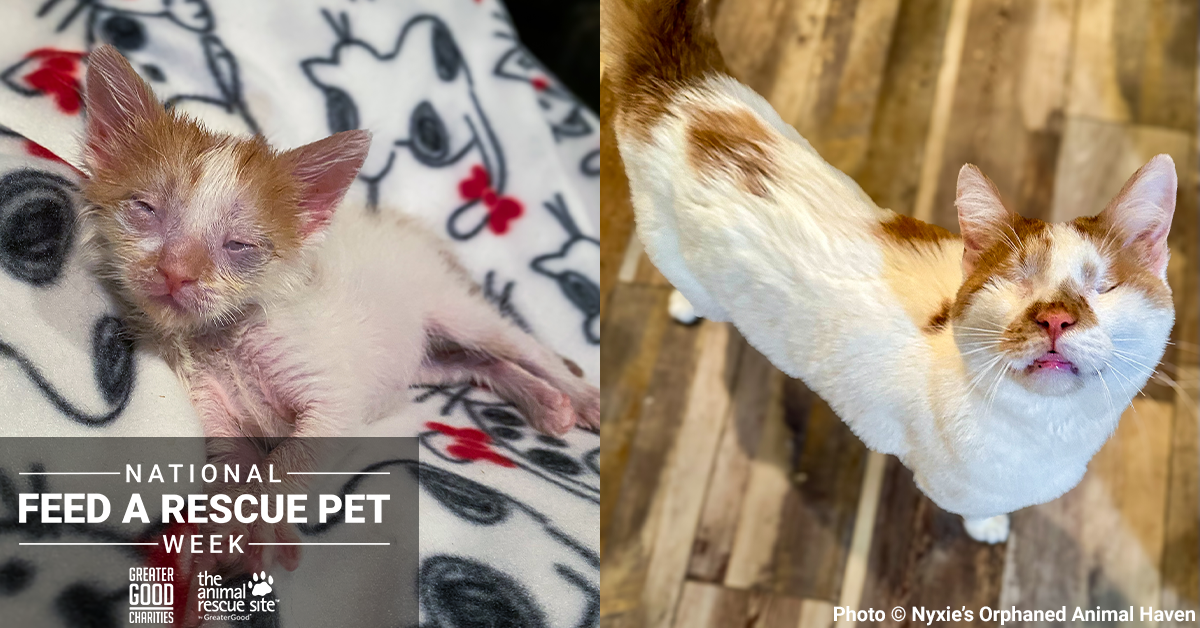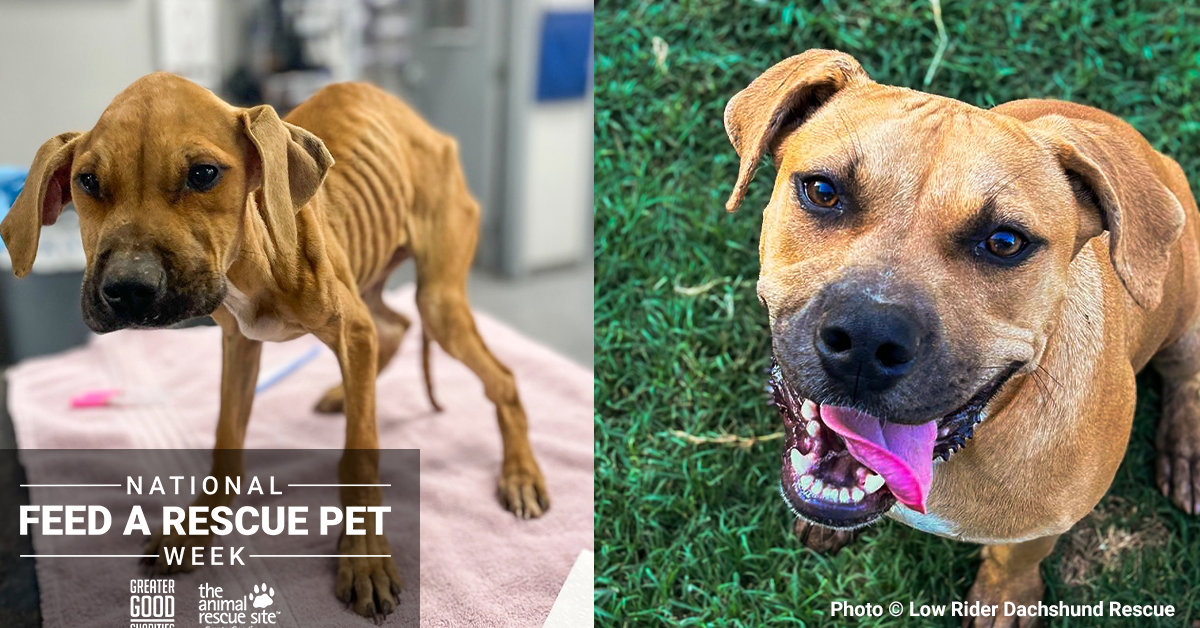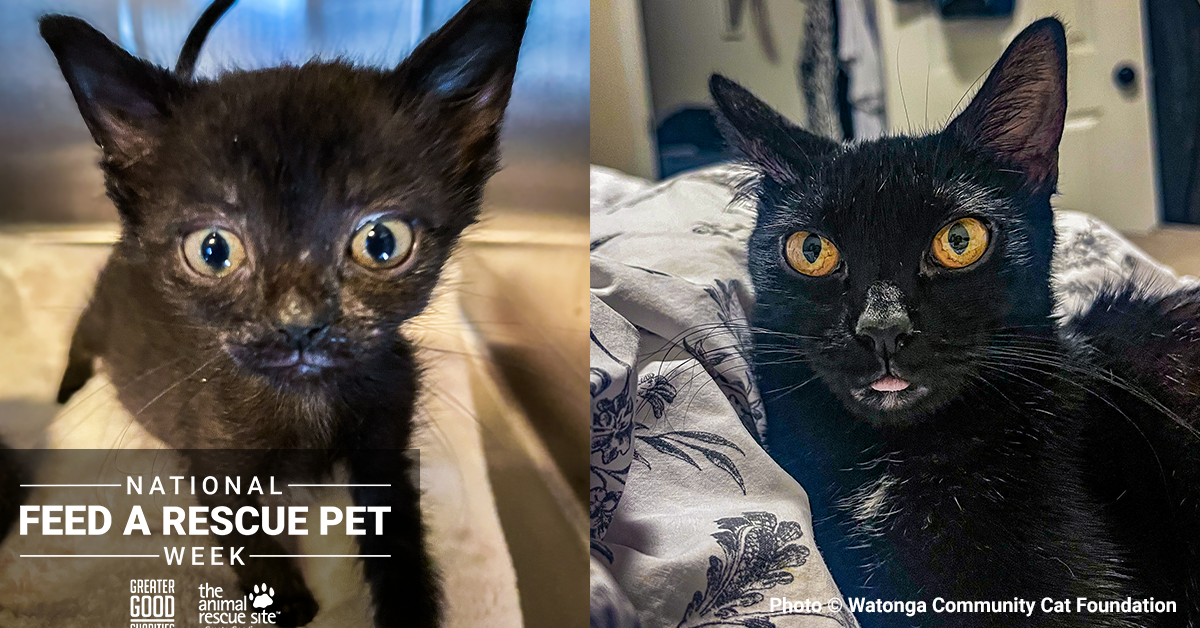National Feed a Rescue Pet Week Provides 3.7 Million Meals for Shelter Pets
In response to the mounting challenges faced by shelters and rescue organizations nationwide, Greater Good Charities established National Feed a Rescue Pet Week eight years ago. This initiative was created to raise funds to provide nutritious meals for pets in need so that the organizations caring for them could redirect funds to other critical needs like medical care, staffing, and more.

Shelters in Crisis
Throughout the country, shelters encounter heartbreaking challenges. Pets are surrendered due to economic strain, volunteers feel exhausted, and organizations are understaffed and lacking resources. Many animal welfare organizations are forced to make difficult decisions because they lack the necessary resources to care for these pets.
A Record-Breaking Achievement: 3.7 Million Meals Donated
Greater Good Charities is excited to announce that, thanks to the overwhelming generosity of our supporters, we provided an astounding 3.7 million meals for shelter pets during our 2024 campaign!

These meals are more than just food; they represent hope and survival for countless animals in need and the selfless people who care for them. By easing the burden of food costs, shelters can redirect funds to medical care, adoption programs, and facility improvements.
reba's success story

When Reba fell ill as a puppy, her owners abandoned her outside and did not provide care for her. She was brought to a shelter in a severely emaciated state and was suffering from life-threatening Parvovirus. Her chances of survival looked slim. However, Reba showed amazing resilience. First, she required immediate medical treatment. And, she desperately needed high-quality nutrition to help her recover. Today, with meals provided by the GOODS program, she is happy and healthy.
mary Katherine's success story

This tiny kitten was not expected to survive the night when a local shelter received an urgent call for help. Mary Katherine and her siblings had been dumped on the street in dire condition. Fortunately, Greater Good Charities provided food and supplies to the shelter that took these kittens in. Now, Mary Katherine is healthy, well-fed and living her best life.
Thank You for Your Support
We could not have reached this remarkable goal without you. Together, we are changing lives one belly-filling meal at a time.
Want to feed more pets in need?


.jpeg)